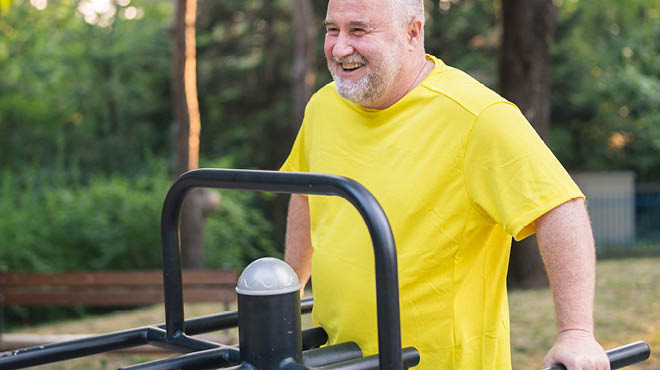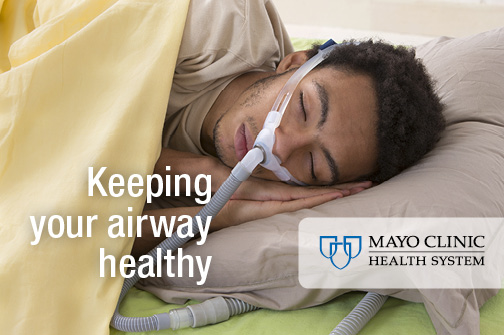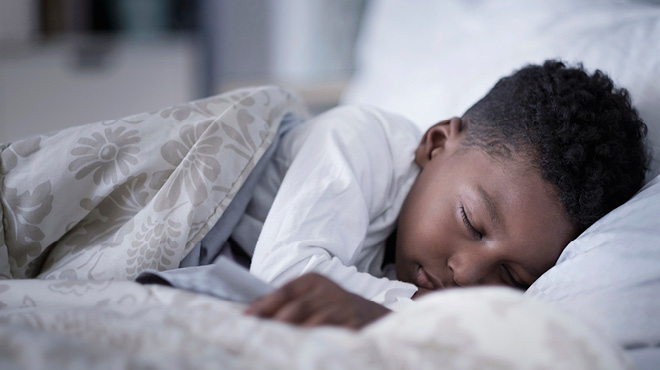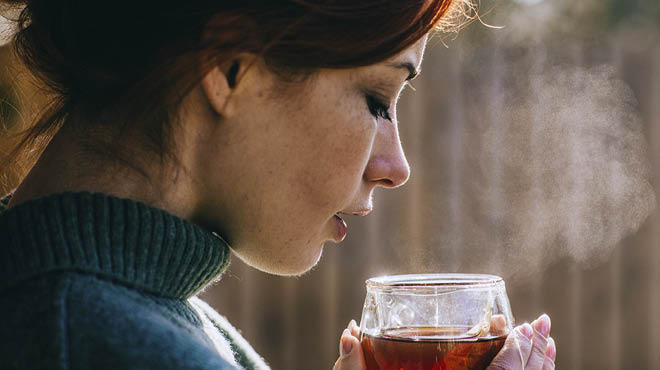Posted By

Christopher Williams, M.D.
Intensive Care (Critical Care), Pulmonology (Lungs), Sleep Medicine
Recent Posts
Test your CPAP IQ

Will I look and sound like Darth Vader? Is it possible to suffocate if the power goes off? Isn't it just a gimmick? Will I get cancer from using it?
These are just a few of the questions pulmonologists have been asked when prescribing a continuous positive airway pressure (CPAP) machine to relieve their patients' sleep apnea symptoms.
Whether you've recently been prescribed a CPAP machine or have been using one for a while, take this true or false quiz to learn more about this therapy:
CPAP therapy is a gimmick.
False. CPAP therapy was introduced in the early 1980s, and it has become a proven treatment for sleep apnea. Study results and data back up its effectiveness. Although other options for treating sleep apnea are being developed, CPAP is considered the gold standard.
A CPAP machine isn't a ventilator.
True. The machine uses a continuous stream of air into the upper airway to prop up the upper airway collapse to keep the airway open. It's this collapse that causes sleep apnea symptoms. In other words, it acts like an air splint. CPAP doesn't help you breathe or provide oxygen.
Using CPAP can cure sleep apnea.
False. CPAP relieves the symptoms of sleep apnea: snoring, airway blockage, gasping and awakening from sleep. Because of this therapy, patients may feel they are cured. But if they stop using CPAP, the symptoms will return. If obese patients lose weight, the severity of their sleep apnea may decrease.
A new sleep study and consultation with a sleep medicine professional will be needed to determine if CPAP use can be discontinued.
I've heard CPAP machines can cause lung cancer.
False. In general, CPAP use has not been associated with cancer. However, in recent years, one manufacturer recalled its CPAP machines because sound abatement foam inside the device could degrade, and the particles were inhaled by the users.
If your machine was part of this recall, you should see your sleep specialist or pulmonologist for follow-up.
CPAP causes red, swollen eyes and sinus infections.
Maybe. If your mask is leaking or the pressure is too high, air can escape up toward your eyes and irritate them. This issue can be fixed by checking the fit and style of your mask. Some limited studies suggest that if a patient has glaucoma, the air pressure can increase pressure in the eyes. But more evidence is needed.
If you have sinus or other nasal issues, wearing the mask can worsen them. Consult with your health care professional to address these underlying issues, as well as your sleep specialist to find a mask that doesn't increase your discomfort.
CPAP machines can be as small as a cellphone.
True. The design of CPAP machines has come a long way since their development 40 years ago. The first CPAP machine was powered by a vacuum cleaner motor, the hoses were swimming pool tubing, and the mask was a plaster cast glued to the patient's face.
Today, manufacturers offer CPAP machines in various sizes that are easy to transport and set up. Battery-operated CPAP machines are perfect for those who travel — and even go camping.
I'll have to buy a special cleaning machine.
False. Regular cleaning with soap and water, according to the manufacturer's instructions, are all that's needed.
If the power goes out, I'll suffocate.
False. Since the CPAP machine doesn't help you breathe or provide oxygen, you won't suffocate, even if the power goes off. However, without the stream of air propping up your airway, it may feel like you can't breathe, as well. That's why some patients like to keep backup battery packs on hand. And you can always remove the mask.
A CPAP machine is addictive.
False. While the machine itself is not addictive, patients become addicted to the results of regular CPAP use. These results include getting better sleep and feeling more energize and focused. If they stop using CPAP, their sleep apnea symptoms will return, along with drowsiness and lack of concentration.
You'll look and sound like Darth Vader.
False. Vader would gladly have traded for today's quiet, comfortable CPAP machines and masks. Your sleep specialist will help you find the style of mask that's the most comfortable and suited to your needs.
Using a CPAP machine can improve your golf score.
True. A small study of golfers showed that the group taking part in CPAP therapy for six months reported improved quality of life, concentration, endurance and decision-making. And their golf handicap score dropped by 11%. Those golfers with handicap scores of 12 or fewer showed a 31% improvement.
Christopher Williams, M.D., is a pulmonologist in Eau Claire, Wisconsin


